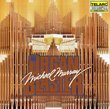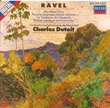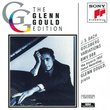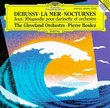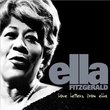| All Artists: Frederic Chopin, Charles Mackerras, Orchestra of the Age of Enlightenment, Emanuel Ax Title: Chopin: Piano Concerto No. 1 in Em/ Variations, Op. 2 Members Wishing: 0 Total Copies: 1 Label: Sony Release Date: 3/16/1999 Genres: Dance & Electronic, Classical Styles: Chamber Music, Forms & Genres, Concertos, Historical Periods, Classical (c.1770-1830), Instruments, Keyboard Number of Discs: 1 SwapaCD Credits: 1 UPC: 074646077122 |
Search - Frederic Chopin, Charles Mackerras, Orchestra of the Age of Enlightenment :: Chopin: Piano Concerto No. 1 in Em/ Variations, Op. 2
 | Frederic Chopin, Charles Mackerras, Orchestra of the Age of Enlightenment Chopin: Piano Concerto No. 1 in Em/ Variations, Op. 2 Genres: Dance & Electronic, Classical
In his second volume of Chopin on a mid-19th-century Érard, Ax continues to demonstrate both the qualities of the instrument and his own artistry. The best test of the disc is the second movement of the concerto, in w... more » ![header=[] body=[This CD is available to be requested as disc only.]](/images/attributes/disc.png?v=430e6b0a) ![header=[] body=[This CD is available to be requested with the disc and back insert.]](/images/attributes/disc_back.png?v=430e6b0a) ![header=[] body=[This CD is available to be requested with the disc and front insert.]](/images/attributes/disc_front.png?v=430e6b0a) ![header=[] body=[This CD is available to be requested with the disc, front and back inserts.]](/images/attributes/disc_front_back.png?v=430e6b0a) |
Larger Image |
CD DetailsSynopsis
Amazon.com essential recording In his second volume of Chopin on a mid-19th-century Érard, Ax continues to demonstrate both the qualities of the instrument and his own artistry. The best test of the disc is the second movement of the concerto, in which Ax makes the Érard sing, plays with artistic flexibility and taste, and interacts beautifully and convincingly with the period-instrument orchestra. (Chopin's often-maligned orchestration sounds better than usual with these instruments.) Ax turns the waltz into a miniature tone poem in an exquisite performance. The early variations, which led Schumann to proclaim Chopin a genius, sound like fluff today, but these players make it entertaining. This disc is both an artistic experience and a musical education. --Leslie Gerber Similarly Requested CDs
|
CD ReviewsEgad! The earlier reviewer is full of garbage! John Kwok | 05/20/2001 (5 out of 5 stars) "...Ax has, in my estimation, a brilliance for being subtle. His playing won't jump out and smack you upside the head (such as Kempff's playing does to me) - you have to be paying attention. His playing will provide the listener with sheer delight to the sense, if the senses are tuned into what he is doing.This CD is no exception. Although is all-around great, the most shining gem on this CD is the second movement of the Chopin Concerto. Here, Ax does an exceptionally brilliant interpretation - and he is backed by an orchestra wonderfully sympathetic to his style of playing. He doesn't "jump out," and neither do that (they couldn't anyways; they're on period instruments).But don't just take my word for it - buy it and hear it yourself! ...this CD is a delight. More than that, it's fun!" Another Great Chopin Recording From Ax, Mackerras Et Al. John Kwok | New York, NY USA | 12/19/2001 (5 out of 5 stars) "Emanuel Ax follows up his excellent performance of Chopin's 2nd Piano Concerto with this splendid version of the first concerto, which again is also performed on a vintage 1851 Erard piano. Just as he did with the first concerto, Ax is content to give an understated performance, that is still replete with drama. It is one which certainly works well on this instrument. Again, he is superbly backed by Mackerras and the period instrument ensemble Orchestra Of The Age Of Enlightenment. Those who prefer Argerich's dramatic interpretations may find this recording a bit of a disappointment. However, I think Ax's interpretation is as valid as hers. Once more, the sound quality is exceptional." Genuine Magic Mike Simonsen | San Francisco, CA | 07/09/2007 (5 out of 5 stars) "If you like your Chopin pianism percussive, or even merely aggressive, this CD is not for you. The 1851 instrument has a gentle and rarified sound, and a fortissimo here can't be compared with the results of a rabid assault on a contemporary Steinway or Bosendorfer.
The performance overall is fairly loose-limbed, a surprise from Mackerras who usually errs on the side of trim efficiency. I do not consider the relaxed tempi a result of sleepwalking, but rather a reaction to the bell-like resonance of the keyboard sound. Often musicians will slow down if the beauty of their work surprises them, to prolong and deepen the happiness, and that's my explanation for what happens on this CD. This is a great second version of the concerto to own. It will force you to reexamine a lot of your assumptions about Chopin, unless of course your temperament does not allow for such things." |

 Track Listings (5) - Disc #1
Track Listings (5) - Disc #1

